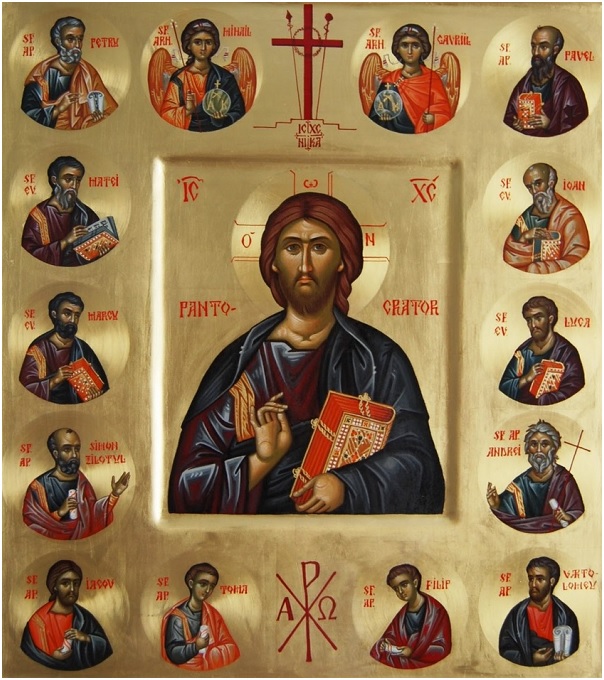The unique work of the holy apostles
3 July 2023On June 30, with particular honor, the Church celebrates the feast of the choir of Christ’s Twelve Apostles, because their work and contribution to the task of the salvation of the world were critical. The Church, as well as humankind in general owes a great debt of gratitude to these outstanding personalities. They became guiding lights reflecting Christ’s unwaning light, bringing people back to the proper path leading to heaven.
The Lord Jesus Christ called them to be his associates and to continue his task of redemption. ‘I chose you and appointed you so that you might go and bear fruit, and your fruit will last’ (Jn. 15, 16). ‘As the Father sent me, I am sending you’ (Jn. 20, 21). He told them: ‘Go and make disciples of all the nations’ (Matth. 28, 19) and ‘You will be my witnesses… to the ends of the earth’ (Acts 1, 8). But he also warned them: ‘Behold, I am sending you as sheep into the midst of wolves’ (Matth. 10, 16), as a reminder that their work would not be easy.

He didn’t choose them from among the elite of the aristocracy or the politically powerful, the economically prosperous, or the intelligentsia, because the hallmarks of these classes were corruption, decadence and arrogance. On the contrary, he chose people who were of no great significance, no great power and no great learning. People who suffered the vicissitudes and misfortunes associated with sin and the fall more intensely than their more privileged compatriots and who inculcated in their soul the expectation of redemption by God.
On the day of Pentecost (Acts, chap. 2), the Holy Spirit transformed the insignificant, reticent and illiterate fishermen into wise men, forceful personalities and light-filled beings who illumined the whole of the known world. The astonishing experience of the Lord’s resurrection, together with the descent of the power of the Holy Spirit gave them unimaginable impetus. They dispersed throughout the world and proclaimed the new, auspicious and saving message of redemption in Christ for the human race. Their hearts, burning with divine zeal, and their fiery speech made other people’s hearts pound with the longing for redemption. The seed of the Gospel was cast by these tireless and divine laborers in every part of the known world and it multiplied in a spectacular manner.
The darkness of delusion was dispelled when the Gospel truth was heard. Oppressive, superstitious notions were overthrown by the spiritual freedom of the Christian message. These unassuming Galilean fishermen guided the world onto the path of humanity, civilization and progress. Through their teaching, for the first time, those people who had formerly been scorned and of lowly station, of no greater value than animals or things, were now shown to have human value and, furthermore, to be images of God. Many powerful people realized that their secular authority was of no real value and so renounced it. A new, unprecedented, world-wide brotherhood was born: the Church of Christ. This was a new actuality of love and comradeship among people and peoples within the inhumane world of sin and evil; it was a means of salvation and deliverance from enslavement to sin and corruption.
Humanity and our current civilization owe a great debt of gratitude to the holy apostles. What the knowledge and power of the ancient world was unable to achieve, was brought about by the choir of Christ’s disciples and apostles. The world, alas, didn’t appreciate their contribution; on the contrary, it did everything it could to undo and tear down what they had built. Saint Paul describes the difficulties the apostles faced in very graphic terms: ‘For it seems to me that God has put us apostles on display at the end of the procession, like those condemned to die in the arena. We have been made a spectacle to the whole universe, to angels as well as to human beings. We are fools for Christ, but you are so wise in Christ! We are weak, but you are strong! You are honored, we are dishonored. To this very hour we go hungry and thirsty, we are in rags, we are brutally treated, we are homeless. We work hard with our own hands. When we are cursed, we bless; when we are persecuted, we endure it; when we are slandered, we answer kindly. We have become the scum of the earth, the garbage of the world, right up to this moment’ (1 Cor. 4, 9-13). These myriad difficulties, and hardships, the labor and, above all, the inhumane persecutions didn’t deter them. Their work bore fruit because the Holy Spirit, who dwells in the Church, multiplied it (Jn. 15, 26).
The work of the apostles has continued through their successors. In every place where they founded local churches, they consecrated bishops and presbyters to continue their work In the book of the Acts, the most important book we have about the mission of the Church, Saint Luke writes: ‘Paul and Barnabas ordained presbyters for them in each church and, with prayer and fasting, committed them to the Lord, in whom they had put their trust’ (Acts. 14, 23). This unbroken line of succession continues to this day, in terms of persons and teaching, which is why our Church is called Apostolic. All those who labor in the Church of Christ, laity and clergy, in essence continue the work of the apostles. So great is the task they perform.
All of us, then, should accord the ‘Co-workers of Christ’ (2 Cor. 6, 1) the honor they deserve, because our Church is founded on these great personalities. This is confirmed by Saint John the Evangelist, who saw Christ’s Church Triumphant in the heavens, founded on ‘twelve foundations, and on them were the names of the twelve apostles of the Lamb’ (Rev. 21, 14).






